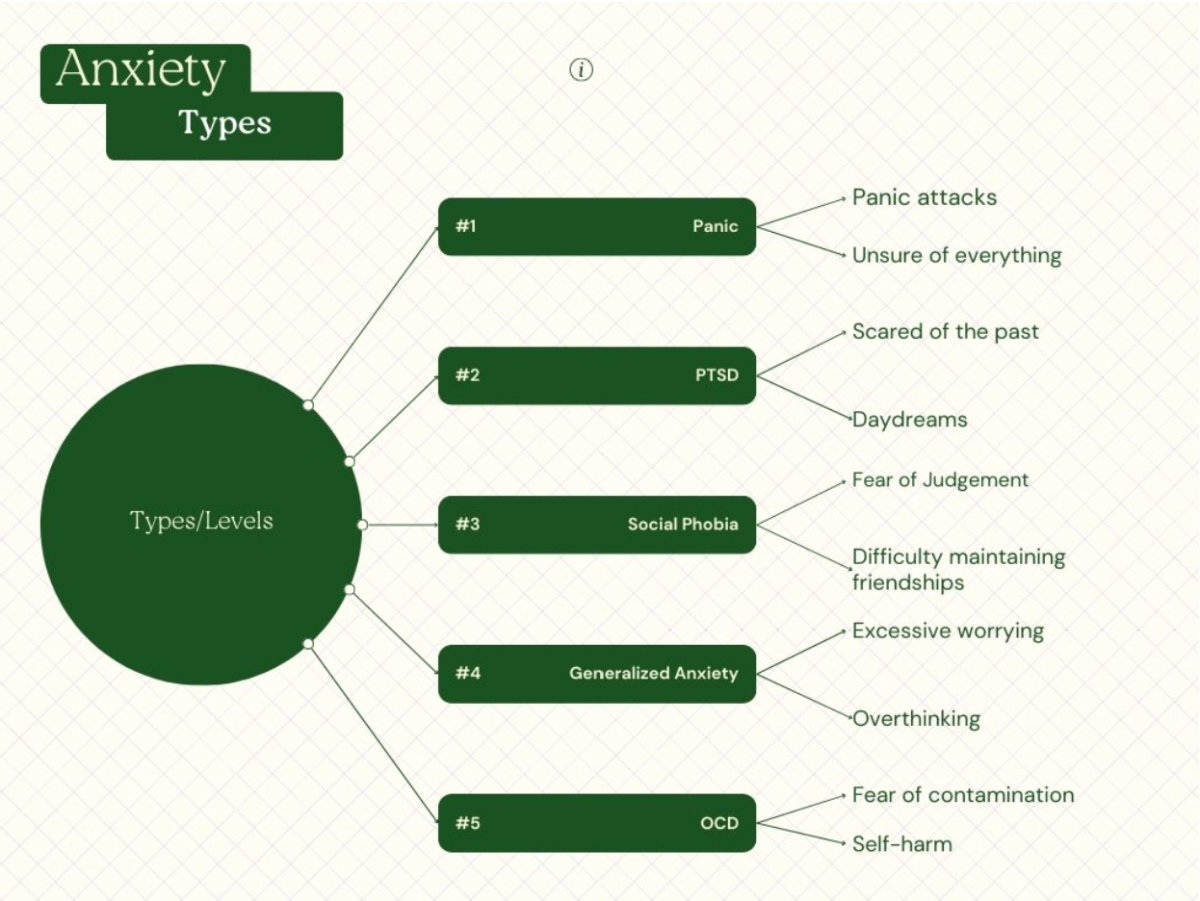Shaking, trembling, body flowing with anxiety. Time seems to slow down with seconds seeming like hours. Hallways seem never-ending, flooded with students that seem to multiply and disperse everywhere. Students bump into you and crowd the hallways. The loud voices of students flood your ears, only to get deafened by your heart beating rapidly with no end. Thoughts flowing nonstop only make you more distressed as every second passes by. “Where am I supposed to go”, “There are a lot of students”, and “I wasn’t prepared for this”. This is how it feels to have social phobia at school.
Anxiety is defined to be a disorder that inflicts feelings of fear, dread, and uneasiness. There are many symptoms of anxiety: feeling restless or very tense, rapid heartbeats, the body becoming weak, and panicking, among others. According to a study in 2019 by the World Health Organization, 301 million people suffer from anxiety. Also, according to the Clearview Treatment Program, Anxiety is an umbrella term with five types; panic disorder, generalized anxiety disorder, obsessive-compulsive disorder, post-traumatic stress disorder, and social phobia. The symptoms someone can experience differ by each stage and can affect the person either mentally or physically.
“Well it depends on the person, of course,” counselor Sarah Drake said. “Some people can have panic attacks and can exhibit outward symptoms like anger, while others can have physical symptoms like throwing up and running out of breath.”
Along with the five main types of anxiety, four levels of anxiety are classed by the level of distress they cause mild, moderate, severe, and panic. The distress caused between each level can differ drastically, with mild anxiety causing nausea and sweating. On the other hand, at a panic level, people can suffer from frequent and recurring panic attacks.

Anxiety can not only affect someone’s emotions but how they communicate those emotions as well. Anxiety can cause strong emotions to take over and display actions that don’t actually show their true feelings. This is very common with the more severe levels and types of anxiety.
“Sometimes when I get nervous my body reacts in a way I wouldn’t react myself,” junior Talan Chanthalack said “Sometimes my body could act out of anger when really I could be feeling sad.”


